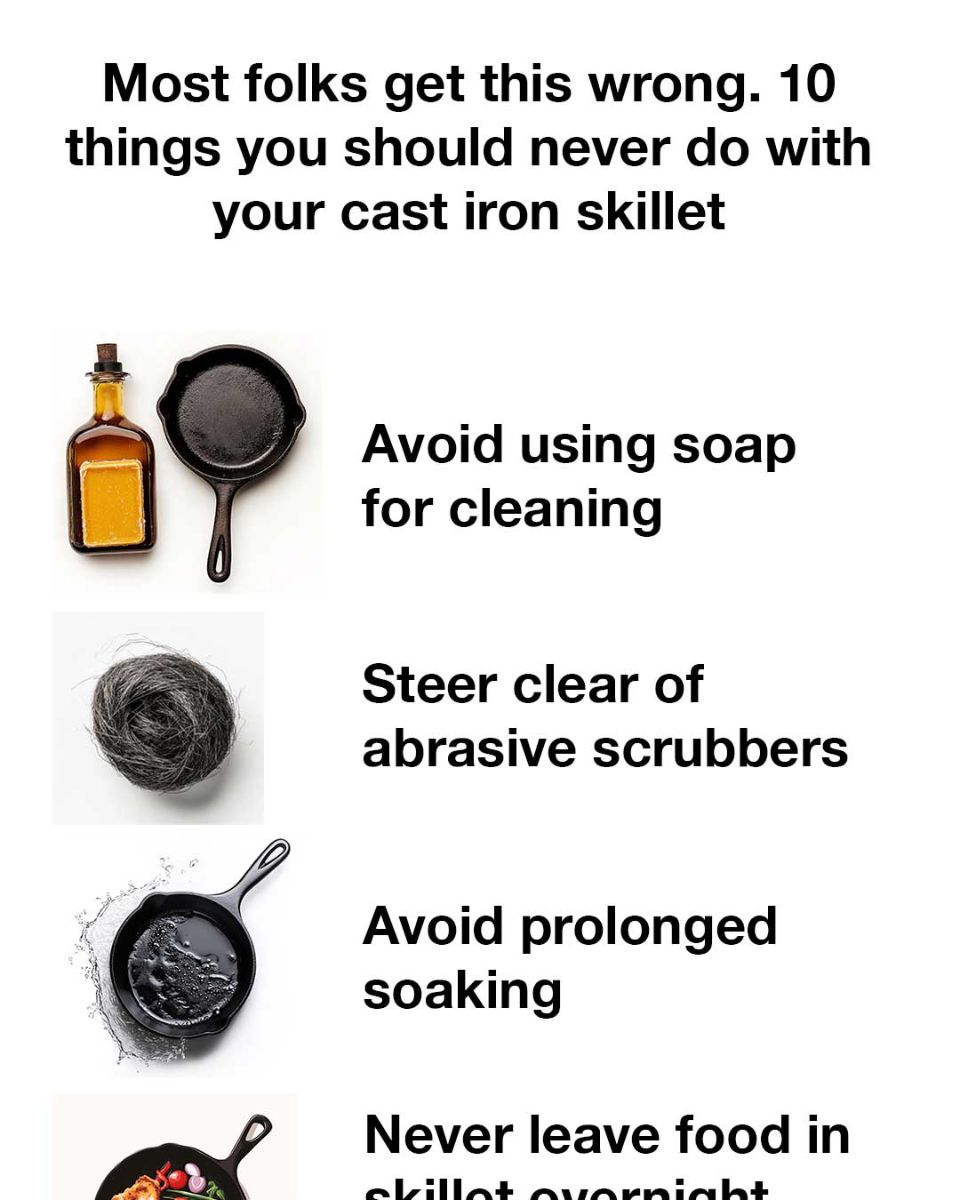Most folks get this wrong. 10 things you should never do with your cast iron skillet
McKayla Davis
Contributing Writer
Print this recipe
Cast iron skillets are beloved kitchen tools, known for their durability, heat retention, and ability to enhance the flavor of food. However, they require specific care to maintain their quality and extend their lifespan. Many people make common mistakes that can damage their skillets, leading to rust, loss of seasoning, and even cracking. Understanding the dos and don’ts of cast iron care is essential for any home cook who wants to keep their skillet in top condition.
Understanding the Importance of Proper Maintenance
Proper maintenance of a cast iron skillet is crucial because it ensures the skillet remains non-stick, rust-free, and capable of providing even heat distribution. Unlike other cookware, cast iron requires regular seasoning and careful cleaning to maintain its protective layer. Neglecting these maintenance tasks can lead to a degraded cooking surface and a shorter lifespan for the skillet.
1. Avoiding the Use of Soap for Cleaning
One of the most common misconceptions about cleaning cast iron is the use of soap. Soap can strip away the seasoning, which is the layer of polymerized oil that gives the skillet its non-stick properties. Instead of soap, use hot water and a stiff brush to clean the skillet immediately after use. For stubborn food residue, a paste of coarse salt and water can be used as a gentle abrasive.
2. Steering Clear of Abrasive Scrubbers
Abrasive scrubbers, such as steel wool, can scratch the surface of a cast iron skillet and remove the seasoning. Instead, opt for a non-abrasive scrubber or a nylon brush. These tools are effective at removing food particles without damaging the skillet’s surface. If you need to remove rust or re-season the skillet, use a gentle approach to preserve the integrity of the cast iron.
3. Preventing Rust by Avoiding Prolonged Soaking
Soaking a cast iron skillet in water for extended periods can lead to rust, as cast iron is highly susceptible to moisture. After cleaning, always dry the skillet thoroughly and apply a light coat of oil to prevent rust from forming. If rust does appear, it can be removed with a mixture of vinegar and water, followed by re-seasoning the skillet.
4. Why You Should Never Leave Food in the Skillet Overnight
Leaving food in a cast iron skillet overnight can lead to several issues. The moisture from the food can cause rust, and acidic foods can break down the seasoning. Additionally, food left in the skillet can impart unwanted flavors and odors. Always transfer leftovers to a separate container and clean the skillet promptly after use.
5. The Dangers of Cooking Acidic Foods Frequently
While cast iron skillets are versatile, cooking acidic foods like tomatoes or citrus frequently can erode the seasoning over time. The acid reacts with the iron, leading to a metallic taste and a weakened non-stick surface. If you do cook acidic foods, ensure you re-season the skillet regularly to maintain its protective layer.
